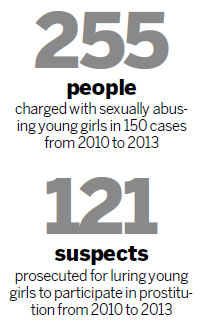Can Sex Offenders Travel to Other States? Understanding the Legal Implications and Restrictions
Guide or Summary:Can Sex Offenders Travel to Other States? Navigating the Legal LandscapeCan Sex Offenders Travel to Other States? Navigating the Legal Land……
Guide or Summary:
Can Sex Offenders Travel to Other States? Navigating the Legal Landscape
When it comes to the rights and restrictions placed on sex offenders, many people are left with questions about their ability to travel, particularly across state lines. The query, Can sex offenders travel to other states?, is a pressing one, as it encompasses various legal, social, and psychological factors. Understanding the legal framework surrounding this issue is crucial for both sex offenders and the communities they wish to engage with.
### Legal Framework
In the United States, the laws governing sex offenders vary significantly from state to state. Generally, sex offenders are subject to registration requirements and may face restrictions on their movement, especially when it comes to traveling to other states. The National Sex Offender Registry, maintained by the U.S. Department of Justice, serves as a central database that tracks sex offenders across the country. However, each state has its own set of laws that dictate the specifics of registration and travel.
Some states impose strict travel restrictions on sex offenders, particularly those who are classified as high-risk. For instance, certain states may require sex offenders to notify law enforcement prior to traveling out of state, while others may impose a travel ban altogether. This means that a sex offender could potentially face legal repercussions if they fail to comply with these regulations.

### Notification Requirements
In many cases, sex offenders are required to inform their local law enforcement agency about their travel plans. This notification typically includes details such as the destination, duration of stay, and purpose of travel. Failure to provide this information can result in serious legal consequences, including additional charges and penalties.
Some states have adopted laws that require sex offenders to check in with authorities upon arriving in a new state. This can create a complex web of legal obligations that can deter sex offenders from traveling freely. In some instances, they may even need to register in the new state, depending on local laws.
### Interstate Compacts

To address the challenges of interstate travel for sex offenders, the Interstate Compact for Adult Offender Supervision (ICAOS) was established. This compact allows states to share information and coordinate the supervision of offenders who move across state lines. However, it’s important to note that not all states participate in this compact, and even those that do may have varying degrees of restrictions in place.
### Impact on Rehabilitation
The restrictions placed on sex offenders can significantly impact their ability to reintegrate into society. Travel limitations can hinder job opportunities, family connections, and social interactions, which are crucial for rehabilitation. As a result, many advocates argue for a more nuanced approach to managing sex offenders, emphasizing the importance of balancing public safety with the need for rehabilitation and reintegration.
### Conclusion

In conclusion, the question Can sex offenders travel to other states? is not a straightforward one. The legal implications surrounding this issue are complex and vary widely depending on state laws and individual circumstances. While some sex offenders may face significant restrictions on their ability to travel, others may have more freedom, provided they comply with local regulations.
For individuals affected by these laws, it is essential to seek legal advice and stay informed about the specific requirements in their state and any states they wish to travel to. Understanding these legal frameworks can help navigate the challenges of traveling as a sex offender and facilitate a smoother reintegration process into society.